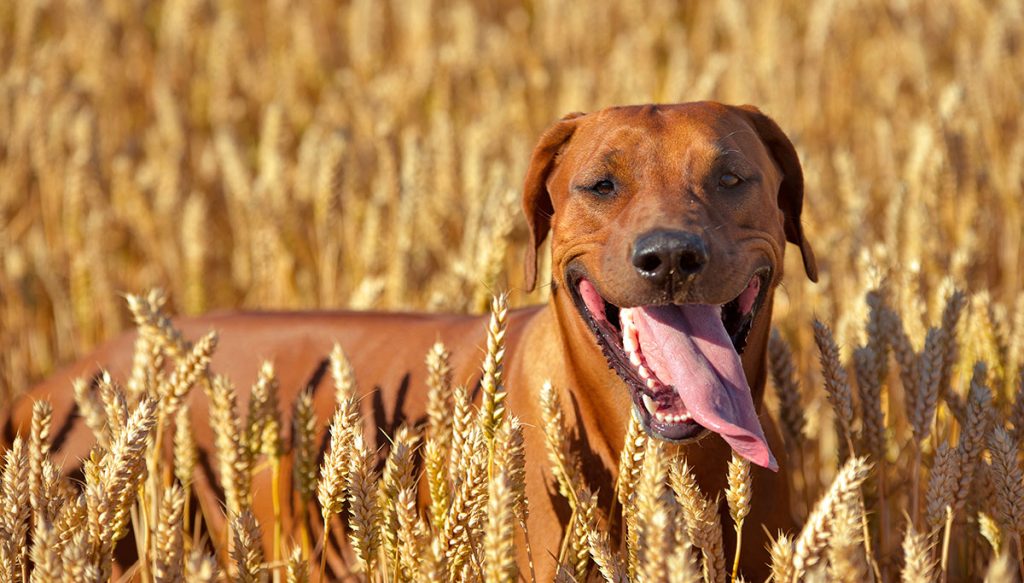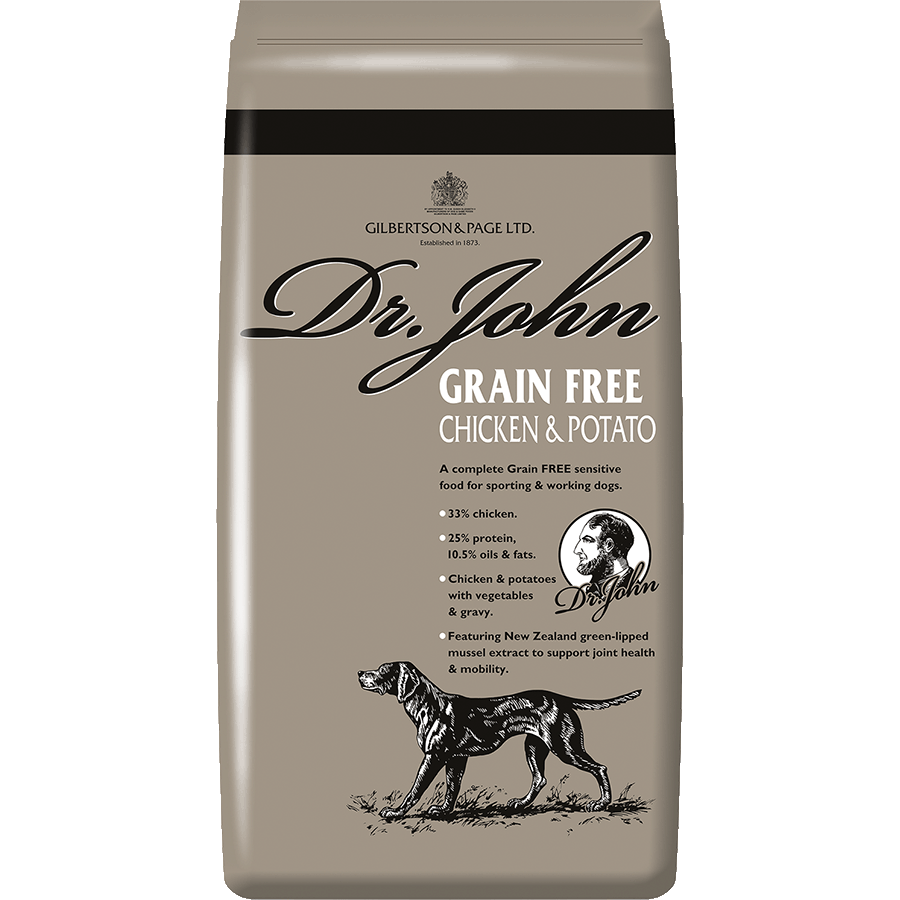Grain-Free Diet – Is It The Choice For Your Dog?
18/04/2018
Regular readers of the blog may remember previous articles including references to wheat intolerance in dogs. Gilbertson & Page designed Dr John Hypoallergenic, containing barley and oats, and Dr John Hypoallergenic Lamb and Rice to cater to these dogs. The latest addition to the Dr John range is their grain-free offering. Dr John Grain-Free Chicken and Potato caters to those dogs who benefit from a grain-free diet. We delved deeper into grain-free diets to find out what they entail and which dogs benefit most from them.
What is a grain-free diet?
Dog owners who favour a raw food diet argue that dogs are not meant to eat carbohydrates, because they would have originally eaten raw meat from their prey. However, our domesticated dogs’ ancestors would have most likely ingested small amounts of carbohydrates and vegetable matter via the prey’s stomach contents. Through evolution and domestication, our canine companions have developed the ability to digest more carbohydrates and grains. With the advent of commercial dog food, wheat has generally been the preferred source of carbohydrate.
More recently, concerns about wheat intolerance and sensitive stomachs has led to dog food manufacturers such as Gilbertson & Page increasing their range to meet the demand for dog foods that cater to a range of specialist diets. Besides Dr John Grain-Free, they also manufacture Dr John Hypoallergenic, which is wheat-free, and Dr John Hypoallergenic Lamb Rice, which caters to those dogs who have issues digesting both wheat and chicken.
Grains can include wheat, oats, barley, corn, buckwheat, quinoa and rice. So a grain-free diet tends to replace these grains with other ingredients like potatoes, apples and peas.
What are the benefits of a grain-free diet?
While research has shown that the majority of dog food allergies tend to be beef or dairy related, there are also a number of dogs whose allergies have a link to their grain-based diets. Like people, dogs are individuals and it can take time to find the best diet for each dog. Whilst many dogs will thrive on a diet based on wheat and other grains, those with more sensitive stomachs may find a grain-free diet more beneficial. Symptoms of problems with a dog’s diet can include an upset stomach, skin complaints, lethargy and moulting. Changing to a dog food that is more easily digested or avoids certain ingredients can solve these problems in some cases.
Is a grain-free diet the same as a carb-free diet?
The short answer is ‘no’. Grain-free diets still contain a carbohydrate in some shape or form. In some grain-free dog foods, the carbohydrate content may even be higher than similar grain-based products. In Dr John Grain-Free, the carbohydrate content comes from potato and peas (31% to be precise), which is higher than the carbohydrate content in some of their other feeds.
Are there any disadvantages to a grain-free diet?
The most important thing to consider when choosing a dog food is the nutrient content. It is essential that dogs have a well-balanced diet, providing protein, carbohydrates, fats and oils and a range of vitamins and minerals to stay healthy. Grains are a source of nutrients in dog food, such as Vitamin E and linoleic acid. As long as those nutrients are still present in some other form, then a grain-free dog food is fine. Reading the ingredients list and checking the label for nutrients is a great idea. Find a brand you can trust and seek the advice of a vet if you have any concerns. A responsible dog food manufacturer such as Gilbertson & Page will ensure that any grain-based nutrients are not lost in removing those grains from a dog food.
Should you choose a grain-free diet for your dog?
It is important to seek the advice of your vet when changing your dog’s diet. If you have concerns about allergies, they will be able to run allergy and intolerance tests. These should get to the bottom of exactly what they are, or are not, allergic or intolerant to. If grains are a problem for your dog, switching to a grain-free diet could be very beneficial for them. When changing dog food, it is a good idea to make the change gradually over a week. This avoids upset tummies from sudden changes in diet.




